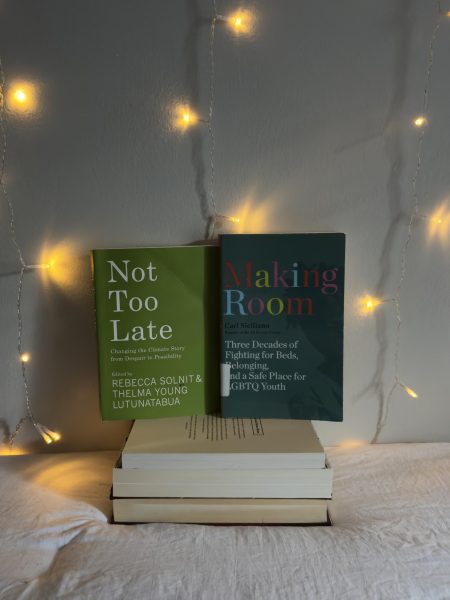Russian Riot Grrrl band brings the ruckus on a global scale
A YouTube video zooms in on what looks like circus performers moshing in front of a church. Brash punk music blares, flustered security guards stumble, and bystanders clutch their pearls. It’s unclear what exactly is going on, but whatever it is, it’s causing a commotion.
The group of performers aren’t circus performers, but feminist punk band Pussy Riot, and the uproar they caused has earned them not only worldwide attention, but jail time in their native Russia.
Pussy Riot formed in 2011, opposing Russian President Vladimir Putin’s plan to run for office again. The group is composed of over 10 members, known for wearing brightly colored balaclavas while staging guerilla shows full of anti-Putin rhetoric in the streets of Moscow.
On February 21, the infamous event took place in Moscow’s Christ the Savior Cathedral. It lasted less than a minute. The impromptu performance included sporadic dancing, rough-housing, and mock prayer. The group also chanted a “punk prayer” which exclaimed, “Virgin Mary, Mother of God, become a feminist” and “Put Putin Out.”
What the feminist group considered political performance art, Russian officials considered “hooliganism inspired by religious hatred.” Officials arrested three Pussy Riot members by March 15.
On August 17, all three women were convicted and sentenced to two years imprisonment. Shouts of “Shame! Shame!” were heard from the courtroom. Even more condemnation was heard around the world, with musical provocateurs such as Madonna, Björk and Green Day all speaking out in defense of Pussy Riot.
Yet, this brand of uber-political, angst-driven disobedience seems anachronistic in this day and age.
Pussy Riot describe themselves as a “Riot Grrrl” group, an explosive music scene associated with third-wave feminism. that originated in the 1990s by bands like Bikini Kill, Sleater-Kinney and Huggy Bear.
So what’s a feminist group harkening back to the 90s doing in 2012? Reminding us all that speech isn’t as free as we think.
Pussy Riot didn’t do anything violent. It seems the only thing they hurt was the Russian court system’s ego. You would think that with such a hefty conviction, Pussy Riot’s defiant acts would have involved some kind of brutality, but they were merely protesting their country’s current political state with a song.
Russia has a historical discomfort with feminist activism. Thus, when a gang of women erupted onto a religious site, shouting about removing President Putin from power and Mary’s lack of feminist identity, it’s easy to see why some people were offended. But this hardly warrants jail time.
Becoming larger than their bold sound, Pussy Riot have reminded us all that music can still cause political riots.





